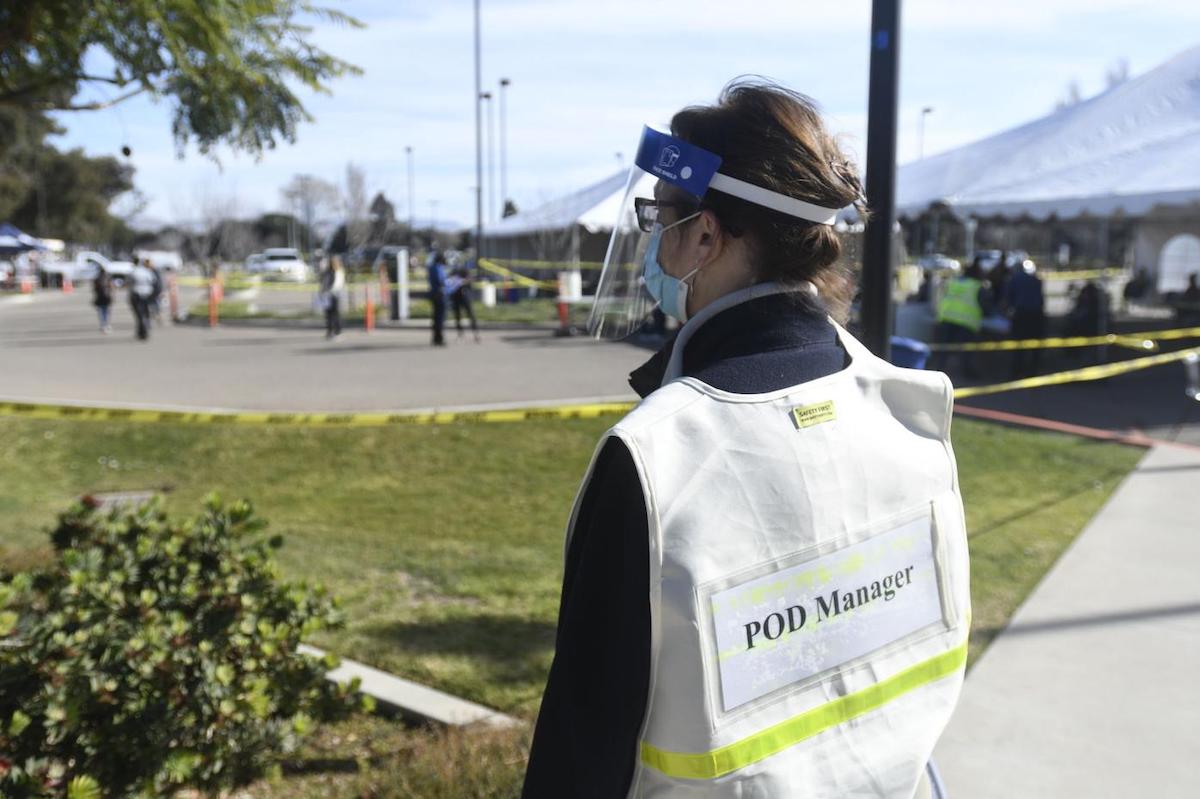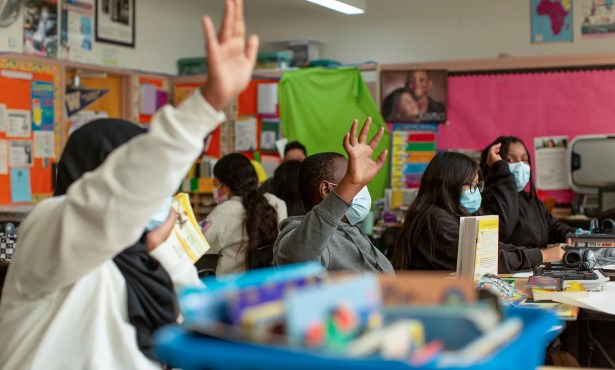It was her first day on the job as a COVID-19 vaccination site volunteer when Elizabeth Wilbanks was told by Santa Barbara County Public Health Department supervisors to turn away a 92-year-old undocumented woman because she couldn’t produce a photo ID. The woman was advised to return with a library card or other form of identification to prove her eligibility as a county resident 75 or above.
“It broke my heart,” said Wilbanks, a biology professor at UCSB. “We should have been able to do better. We know that voter photo ID laws discriminate against Black, Indigenous, Latinx, and Chicanx communities with what courts have called ‘surgical precision.’ Why allow such practices to go forward when it’s a matter of life and death?”
The encounter took place February 3 in Santa Maria, said Wilbanks, whose role was to greet residents and ask them a handful of preliminary questions as they lined up for their shots. It was toward the end of a slow day, and there were plenty of extra vaccines on hand, she said.
The elderly woman remained in her car while her granddaughter spoke to the Public Health team, explaining her grandmother had only ever owned a Mexican ID, which was stolen, along with her purse, shortly before the pandemic began. She’d lost family and friends to the virus, the granddaughter said, and was so afraid of falling ill that she hadn’t left the house since March.
After reading through Public Health’s website, she continued, the pair decided not to make an appointment so they wouldn’t take one of the limited spots from someone with the proper documentation. They were hoping the county would still be willing to help them.
Get the top stories in your inbox by signing up for our daily newsletter, Indy Today.
Jackie Ruiz, the Public Health Department’s spokesperson, said the site team “worked with the individual to discuss if there were utility bills, insurance medical cards, as well as library cards that list a county address. Additionally, our team recommended a medical bill statement that would have the individual’s name and a county address.” As a general rule, Ruiz said, “We are committed to making sure that documentation is not a barrier to getting vaccinated.”
But that’s unfortunately what happened that day, Wilbanks said, as the request was sent up the ranks of Public Health and ultimately denied. “We didn’t do anything to remove the barrier,” she lamented. “What concerns me is that we gave this woman the burden of doing something more. Granted, many vaccines are now going to be routed through hospitals ― like Marian, Cottage, Sansum ― which may have different policies, but Public Health sets the tone.”
The woman’s granddaughter was brave enough to make her case in person, Wilbanks went on. What about all the other undocumented residents who may read Public Health’s website and decide to not even try?
Wilbanks acknowledged the heroic work performed daily at the public vaccination sites across the county. “Generally, everyone is doing their damndest to get shots in arms,” she said. But she worries if the county’s hard-and-fast photo ID rule may be putting vulnerable populations off from receiving their vaccines. “Even asking for ID is intimidating and discouraging,” she said. “This is something as a community we should be talking about.”
Ruiz said she was unaware of other such incidents. “Our team works very carefully to ensure we can get persons eligible and with appointments vaccinated,” she said. “We are open to being flexible and responsive to help ensure our vulnerable community members are vaccinated.”
At a virtual town hall meeting hosted by the Public Health Department last week, however, representatives of CAUSE (Central Coast Alliance United for a Sustainable Economy) and MICOP (Mixteco Indigena Community Organizing Project) expressed concern about similar types of roadblocks.
Dalia Garcia passed along a story about a Mixteco resident of Santa Maria being asked at Albertsons for his Social Security number and proof of insurance. “These types of questions scare our community,” Garcia said. “It doesn’t allow for any comfort or trust in the vaccine.”
Public Health Director Dr. Van Do-Reynoso said she would “address that partner” and others to ensure that kind of thing didn’t happen “moving forward.”
Every day, the staff of the Santa Barbara Independent works hard to sort out truth from rumor and keep you informed of what’s happening across the entire Santa Barbara community. Now there’s a way to directly enable these efforts. Support the Independent by making a direct contribution or with a subscription to Indy+.



